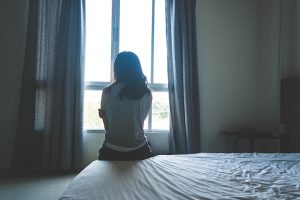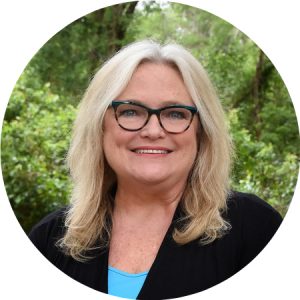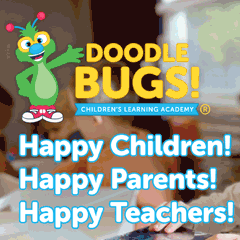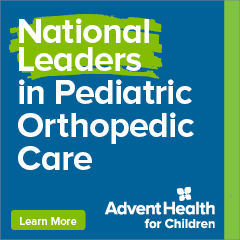A Guiding Hand
Rescuing individuals from a human-trafficking situation is just the first part in helping survivors, and Central Florida’s The Lifeboat Project is here to provide the lifetime of care, support and opportunity helping them reclaim their lives after that traumatic experience.

A little more than 13 years ago, Jill Bolander Cohen’s occupational experience was being a professionally trained jazz singer, working in her family’s coffee business and serving as a worship leader. It was a position she had taken with her congregation that led her to an eye-opening Washington, D.C., trip where she first learned about the horrors of human trafficking.
That experience changed the entire trajectory of Cohen’s life. The founder and CEO of The Lifeboat Project created the nonprofit organization to offer a comprehensive, trauma-informed approach to survivors of human trafficking. With a range of residential housing options for both individual survivors and those with children, as well as a mission founded on providing long-term care, educational opportunities and a lifetime of support, The Lifeboat Project endeavors to help survivors process their trauma in a healthy way while reclaiming both their autonomy and the direction of their lives.
As survivors escape, haunted by myriad traumatic experiences, the best practice for supporting a vulnerable population is a constantly evolving process “that doesn’t have a playbook.” Cohen and The Lifeboat Project team diligently learn from, proactively adjust to and tirelessly offer that personalized support to the population they service to meet those individuals wherever they are.
Guided by a care philosophy designed to remain relevant and responsive throughout a survivor’s entire life means recognizing the importance of giving them access to housing, which the nonprofit also provides access to in a variety of ways, from group homes to transitional homes and spaces specifically intended for mothers who have children in their care, like the Breakwater Center for Women and Children, a quadruplex residence providing targeted support for those nuanced situations since 2021.
“A lot of times, people can’t heal if they don’t have their kids,” says Cohen. “And then you’ve got the dynamics of some of these children being with the trafficker, or from the John that [a survivor was] forced to sleep with. So what we’ve done is open Breakwater, these beautiful apartments, where we’re just running case management. I first imagined this more regimented program, but let’s face it: If you’ve got kids and you’re working a job or going to school and your child’s going to school and going to daycare, we’re not going to say ‘OK, we’re eating at 12 and dinner’s at 6’—it doesn’t work like that.”
While it’s essential to create a safe place where individuals can keep healing and growing, addressing and working through their trauma and then providing them with life-enriching opportunities can help shift their mindsets from being a victim fighting for survival to reclaiming their autonomy by taking direction of their future. Those options include everything from an educational partnership with Valencia State College providing a no-cost pathway to a college degree to mental-health treatments like equine therapy—the benefits of which Cohen finds remarkable.
“Horse therapy is one of the latest things we’re doing, and it is unbelievable in the difference it’s making,” Cohen enthuses, noting some recently received feedback illustrating that new initiative’s immediate success. “One [guardian] said she hasn’t been able to get anything out of the girl in her care for six years and then after taking her to two equine therapy classes, she’s opening up and it’s a whole different world.”
In the hopes of securing some additional funding to further its mission, The Lifeboat Project has applied a number of times for Visit Orlando’s Magical Dining Eat for a Cause program, an effort in which proceeds from participating restaurants go toward a designated charity. Cohen had her doubts about continually submitting the nonprofit for consideration, questioning if anyone else would want to broach a topic as heavy as human trafficking. So when she found out the nonprofit was initially among four finalists and then the sole winner of the initiative’s 2023 funding, it came as a very welcome surprise.
“It was like I was in a Twilight Zone episode,” Cohen recalls. “But [the panel of judges] decided they can either be a part of the solution or part of the problem, and they loved the fact that we are all-encompassing, that we help men, women, LGBTQ, immigrants, [victims of] sex and labor trafficking, we help whoever.”
As it continues supporting survivors, The Lifeboat Project is similarly dedicated to stopping traffickers in the act with the “silent signs,” a campaign Cohen launched seven or eight years ago after a fellow Rotarian planted the seed of the idea. It encourages those in the midst of a human-trafficking emergency to flash the American Sign Language letters “H” and “T” to those around them, signaling that they’re in danger and in need of help. A partnership with the Orlando International Airport has helped to spread the initiative’s reach, placing more than 600 informative signs across the airport’s bathrooms and break rooms.
Trafficking can happen to anyone of any gender, faith, racial/ethnic background, sexual orientation or socioeconomic status. And while it can occur at any time and anywhere, Cohen does note that the internet can be a breeding ground for groomers, captors and others looking for their next victim. And while those nefarious intentions are hidden behind increasingly sophisticated and defense-lowering tactics, Cohen advises that attentive, proactive parenting can make a life-saving difference to the children who are especially vulnerable.
“Parents have got to be diligent about smartphones and social media, you’ve got to watch what they’re doing,” Cohen emphasizes. “Parents think, ‘Oh, Little Suzy is so good’—well, she might be good, but she also may think her online friend is a 13-year-old girl when it’s really a 50-year-old trafficker.”

The Lifeboat Project
Apopka
(407) 310-8905
TheLifeboatProject.org









